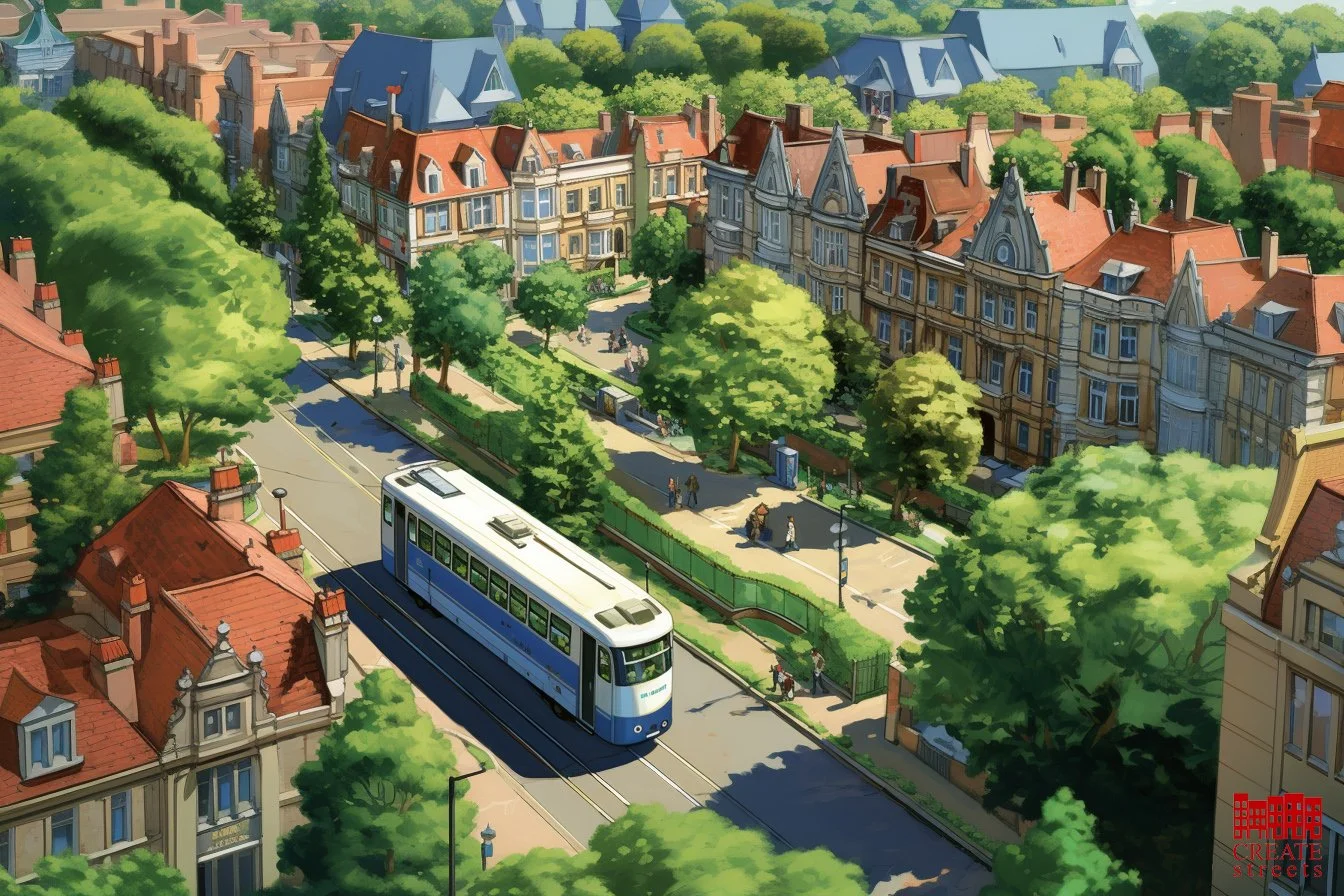When a development project dares to break the Suburban Experiment mold, it faces intense scrutiny from both opponents and advocates. Ironically, these are the very projects we should be studying — and even celebrating. Culdesac Tempe, a car-free community in Arizona, is one such project.
Read MoreCar companies have been talking about making cars a third place for years, and the concept has been engrained in North American culture for even longer. But can cars actually function as a third place? More importantly, should they?
Read MoreNorth American road infrastructure signals to drivers that there shouldn’t be nondrivers in an area, so they fail to see the people who are actually there. This increases the risk of collisions and prevents reform. If cities are to have safer streets, they need to start seeing the people who use them.
Read MoreDanny Pearlstein is the policy and communications director at Riders Alliance, a nonprofit transit advocacy organization in New York City. Today, he joins host Tiffany Owens Reed to discuss congestion pricing, car dependency and public transit in the Big Apple.
Read MoreFor the first time, the Insurance Institute for Highway Safety conducted tests on 14 widely available versions of self-driving technology. Here’s what they found.
Read MorePeople tend, understandably, to think they’ll be safer in an SUV—but what happens to our cities if everyone is driving a bigger vehicle?
Read MoreA national challenge to go one week without driving has parents reflecting on the challenges of transporting children in most American cities and towns.
Read MoreDon’t wage a war against drivers, but don’t wage a war for them, either.
Read MoreAre cars really helpful tools or disruptive devices? Here’s some guidance from ethicist Albert Borgmann on the distinction.
Read MoreLike many other places around the U.S., Philadelphia is facing school bus driver shortages and bus scheduling issues. Its solution? Offer $300 per month to families that drive their children to school.
Read MoreThe key to transportation reform is to add options, then let people choose.
Read MoreIt can be hard to imagine day-to-day life without a car: how would you get everywhere you need to go? Here’s how one family discovered that it is possible, and that life can still be full even when it happens closer to home.
Read MoreFive years ago, Emma Durand-Wood’s family decided to try the car-free lifestyle. And although they’ve experienced many positives from their choice, there have also been undeniable challenges.
Read MoreGoing car-free (or car-lite or car-less) isn’t an option for everyone, but for some, it can work. Here are the upsides Emma Durand-Wood’s family has seen from selling their car.
Read MoreThe critique of car dependence is nothing new for Strong Towns readers—but here’s one that may make you think a little more deeply about the tradeoffs and illusions baked into North America’s transportation industry.
Read MoreMy family lost a loved one to a fatal car crash. Here’s what I wish I could go back and say to the person (and the thousands of others out there in his position) who walked away from that crash, believing he was to blame for it.
Read MoreWe’ve created a society in which families have to choose between either spread-out, single-family living or dense urban living—and each side of this (artificial) binary can come with upsides and downsides.
Read MoreLPTs have become an easy villain for street safety advocates, but are they really what we should be focusing on when examining our transportation options vis-à-vis our vision of a flourishing community?
Read MoreIn walkable cities, it’s not hard to find a solution if you find yourself stranded. But what about in a car-dependent place?
Read MoreNew technologies can solve problems—or make them worse. In the chase for technofixes like flying cars, it's important to know when to pump the brakes.
Read More



















